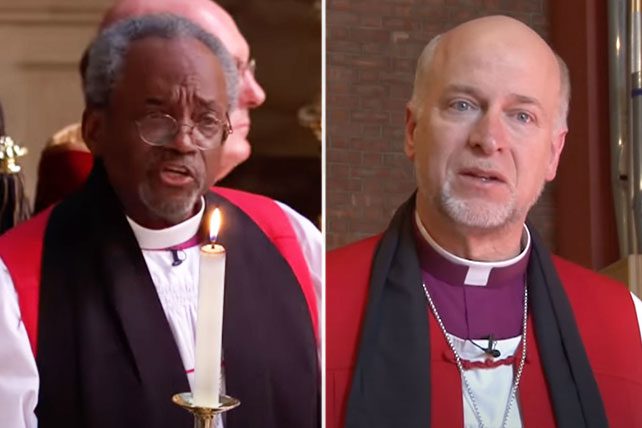As everything seems to change around us more quickly than ever, what church trends should church leaders pay attention to in 2019?
For the last three years, I’ve kicked off the new year with a post on disruptive church trends. You might still find those helpful. Even though some of these church trends are a few years old, they all deal with cultural shifts that are still happening.
Here are the direct links:
7 Disruptive Church Trends for 2018
6 Disruptive Church Trends for 2017
5 Disruptive Church Trends for 2016
The reason this matters so much is two-fold.
First, there’s no shortage of information in our culture. But there is a shortage of meaning. It’s one thing to know something is happening, it’s another to know what to do with it and which church trends matter most.
Second, leaders who fail to navigate the disruptive church trends happening in our culture won’t be left with much to lead.
Leaders who pretend nothing needs to change end up being the blacksmith in the era of the automobile, Sears in the age of Amazon, or Kodak in an Instagram culture.
If you ever hope to reach the next generation, change is your friend.
So, in the hopes of helping every leader better accomplish our collective mission, here are 5 disruptive church trends I see defining conversation and action in 2019 because of these church trends.
1. CHARISMATIC EXPRESSIONS OF CHURCH WILL GROW WHILE ATTRACTIONAL CHURCHES WILL CONTINUE TO STALL OUT
Over the last few years one trend has emerged that hasn’t been talked about nearly enough: Almost all the growth happening in churches seems to be coming from churches that have a more charismatic expression to their worship, preaching and culture.
I’m not talking about charismatic theology here, although some churches would definitely fit that bill. What seems to link most growing churches these days is a more charismatic or expressive style to how they worship, teach and gather.
A few characteristics synthesize these church trends:
Worship that’s actually worship, not just a band performing music in front of a passive audience.
Preachers who speak to the heart as much as they speak to the head.
Communicators who preach as much as they teach.
A congregation (large or small) that actually engages each other and the mission (not just people who randomly assemble).
Facilitating moments of transcendence, not just immanence.
In other words, it’s personal. It’s more emotional. It’s more real. And you can feel it.
I realize that you can poke holes in my theology or definition of this. That’s not the point. I have the privilege of speaking all over the world and connecting with thousands of leaders each year. This is just something I’m seeing.
It’s loose, it’s not particularly well-defined, but it is happening.
Meanwhile, I see churches that cling to a purely attractional model struggling more and more. By attractional I mean:
Their bands perform more than they lead people in an experience of worship.
Communicators who speak more to the head, not the heart, and teach more than they preach.
A congregation of less engaged people who seem to randomly assemble to experience an event, rather than to connect (this is true regardless of how large or small the church is).
A greater focus on immanence without much thought to transcendence.
Why is this? I outline five reasons in this post and you can read the background there.
As we watch this develop, at least from where I sit, there are two cultural shifts happening that are driving this change.
First, as I outlined in the post, the foyer moved. The genius of the attractional church was to make someone’s first encounter with church accessible. That’s still super important (don’t lose sight of that, please), but the Internet means that almost everyone who attends church has watched online first. And even if you don’t have an online stream, they’ve checked out someone else’s or Googled their way through some questions.
This means when they show up, they are ready to go a little deeper a little faster. Not please enroll me in seminary deep…but show me the real thing because I want to know if this is real kind of deep.
Second, I’m sensing younger adults are deeply craving connection and transcendence. In a world that feels like a cacophony of noise and anger, and in a day where they have anything they want whenever they want at their fingertips, young adults are looking for something (SomeOne) beyond themselves…an experience that can’t be reduced, fully explained and isn’t even fully definable.
Which is, of course, part of the character of God. He’s so much bigger than us. The mission is bigger than us. And it’s all bigger than our words can explain.
One further thought on this trend. Total anecdotal observation. But I noticed via Instagram that people seemed to put up their Christmas trees much earlier in 2018. As in late-October and early-November early. As I drilled down a little further, guess what I noticed? Almost everyone doing this was 35 and under.
Complete conjecture, but here’s what I’m guessing. In a world that seems increasingly unsafe and unsound, for young adults, the Christmas tree, lights and decor are reminders of wonder, peace and stability. Whether that’s nostalgia, a bold declaration or a bit of both, wise leaders would think about how to make their church a little more like that. Because of course, if the church can’t offer wonder, peace and stability in uncertain times, who can?
Either way…there is massive opportunity to connect with a culture that deeply wants connection…something other than the hopelessness that seems to be today’s news cycle.
Final word…all of this is a great opportunity for churches that currently do attractional really well. This is not about suddenly becoming inaccessible or completely different. A shift in tone, expression and focus can recalibrate the experience for everyone.
Weird isn’t the goal. Connection is.












